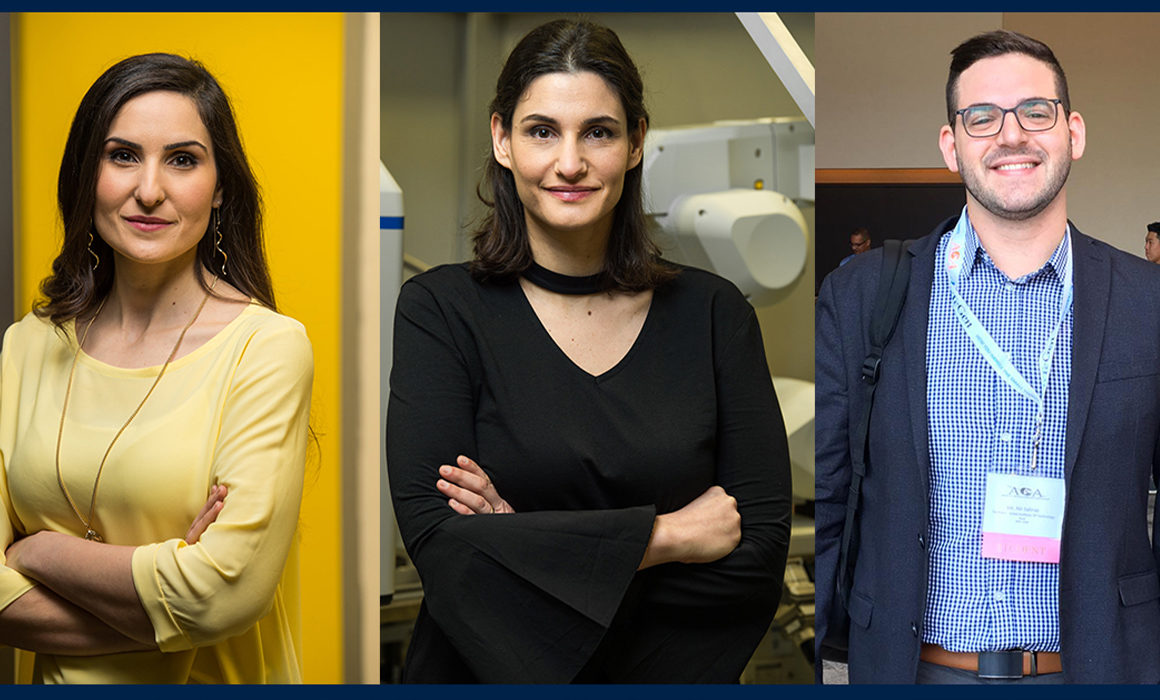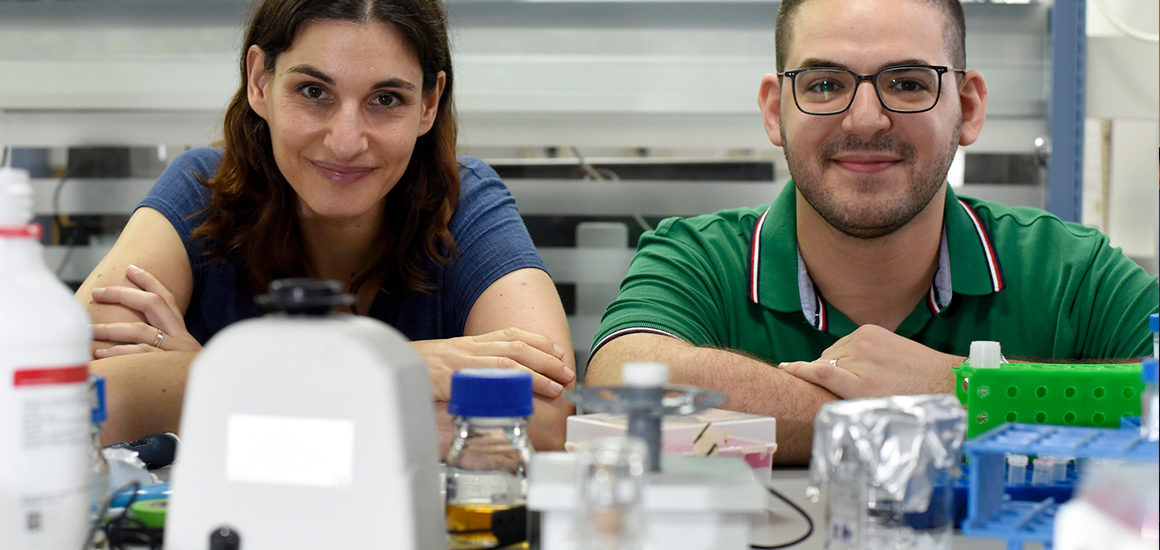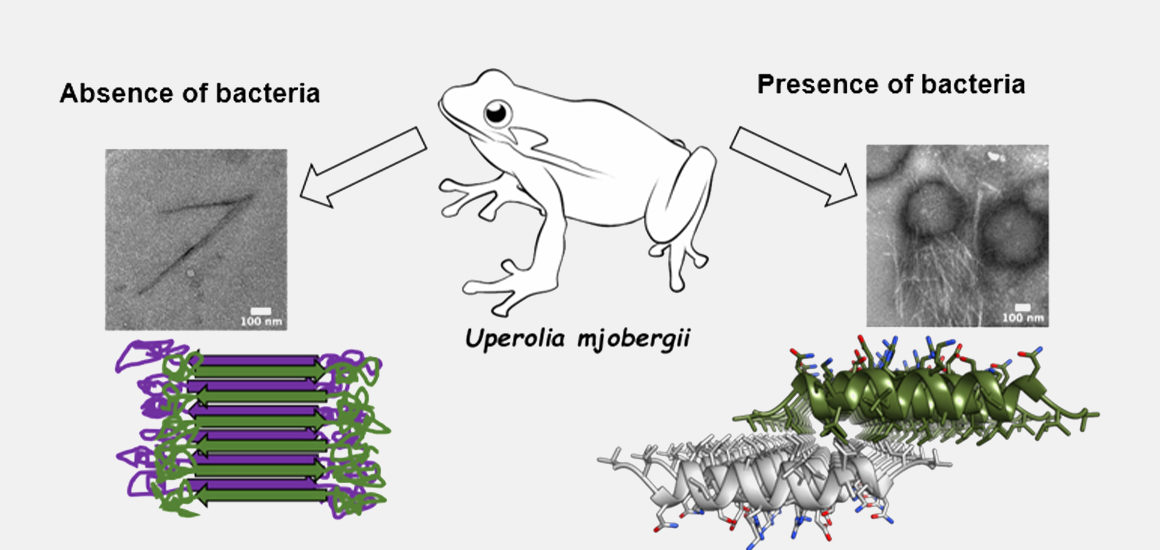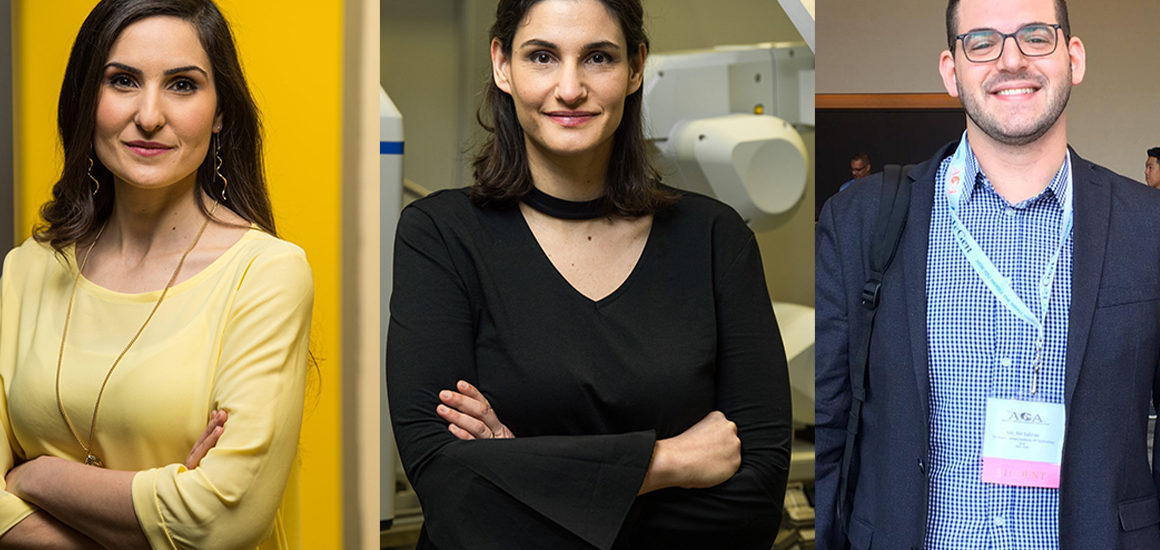Professor Meytal Landau of the Technion – Israel Institute of Technology, together with researchers at the European Molecular Biology Laboratory (EMBL) in Hamburg, Germany, and scientists in Israel and Spain, has discovered a remarkable antimicrobial peptide. The peptide is secreted on the skin of the Australian toadlet (Uperoleia mjobergii) as part of its immune system. The discovery could inspire the development of novel synthetic drugs to combat bacterial infections, and broadens our understanding of neurodegenerative diseases like Alzheimer’s.
An antibacterial peptide that turns on and off
The researchers solved the 3D molecular structure of the peptide, named uperin 3.5. They found that the peptide self-assembles into a unique fibrous structure, which can change its form in the presence of bacteria to protect the toadlet from infections. When “dormant,” the peptide assembles itself into a configuration of highly stable fibrils. These fibrils serve as a reservoir of potential attacker molecules that can be activated when bacteria are present. When the peptide encounters a bacterial membrane, it changes its molecular configuration and transforms into a deadly weapon.
Potential for future medical applications
The antibacterial fibrils on the toadlet’s skin have a structure that is reminiscent of amyloid fibrils, which are a hallmark of neurodegenerative diseases, such as Alzheimer’s and Parkinson’s. In fact, the unique amyloid-like properties of the toadlet’s antibacterial peptide sheds light on the potential physiological properties of amyloid fibrils associated with neurodegenerative and systemic disorders.
Long considered to cause disease, recently it was discovered that certain amyloid fibrils can benefit the organisms that produce them. For example, certain bacteria produce such fibrils to fight human immune cells. It’s hypothesized that antimicrobial peptides are used as weapons in nature, killing not only bacteria but also cancer cells.
The research team hopes their discovery will lead to new medical and technological applications, such as developing synthetic antimicrobial peptides that could be activated only in the presence of bacteria. Synthetic peptides of this kind could also serve as a stable coating for medical devices or implants, or even in industrial equipment that requires sterile conditions.





